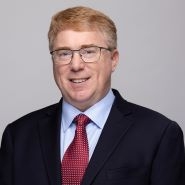US Court Ruling Will Affect Royalty Rate Calculations For Licence Agreements
- June 16, 2022
- Article
- IAM Media
Andrew Ollis and Frank West authored an article featured in the June 15, 2022 on line edition of IAM Magazine, regarding the Federal Circuit’s June 3, 2022 holding in Pavo Solutions v. Kingston Technology Co., Appeal No. 21-1834. See, https://cafc.uscourts.gov/opinions-orders/21-1834.OPINION.6-3-2022_1960213.pdf. The article "US Court Ruling Will Affect Royalty Rate Calculations for Licence Agreements," can be found on IAM Magazine's website.
In that case, the Federal Circuit affirmed the jury verdict awarding $7.5 million in damages for Kingston’s infringement of Pavo’s patent and the district court’s 50% enhancement of damages based upon the jury’s finding that the infringement was willful. The Federal Circuit rejected Kingston’s argument that the district court should have (i) limited the opinion of Pavo’s damages expert regarding a prior license to a discussion of the per unit royalty rate of $0.01 and (ii) excluded the expert’s reliance on the prior license’s express characterization of the per unit royalty as constituting 25% of the licensee’s profits. Pavo’s expert relied upon that characterization to find that a 25:75 split of Kington’s profits on the accused products was a factor for consideration in determining a reasonable royalty. The Federal Circuit also rejected Kingston’s argument that Pavo’s damages expert had not properly apportioned the royalty rate to exclude any value attributable to non-infringing features. The Federal Circuit noted that both parties’ experts found the prior license to be technically and economically comparable (i.e. the same technology, product types, and patent rights as in suit), and therefore, that the royalty rate in the prior license had a “built-in” apportionment between non-infringing and infringing features. The Federal Circuit also affirmed the district court’s judicial correction of the claim language, finding “[a]n obvious minor clerical error, by definition, does not mask that meaning [the intended claim language], so Kingston cannot hide behind the error to escape the jury’s verdict.” Slip Op. at 16 (interpolation added).
The ruling provides lessons for both patent owners and alleged infringers. With respect to licenses, patent owners can plan a litigation damages strategy years in advance be including explanatory statements of financial terms in the license. Alleged infringers should be wary of such statements and carefully consider whether the value obtained by relying upon the agreement outweighs any potential negative impact of such explanatory statements. With respect to infringement, the parties should realize that uncorrected obvious errors in claim language may be corrected by a district court at trial and plan accordingly.
Recent Publications
5 IP Rules to Know to Protect Your Business in the United States (article in French)
Coaching INPI Newsletter










 Counseling & Strategic Advice
Counseling & Strategic Advice IP Transactions
IP Transactions Litigation
Litigation PTAB Proceedings
PTAB Proceedings Start-Up
Start-Up Technology Transfer
Technology Transfer Trademark & Designs
Trademark & Designs U.S. Patent Procurement (Application Drafting & Prosecution)
U.S. Patent Procurement (Application Drafting & Prosecution)









